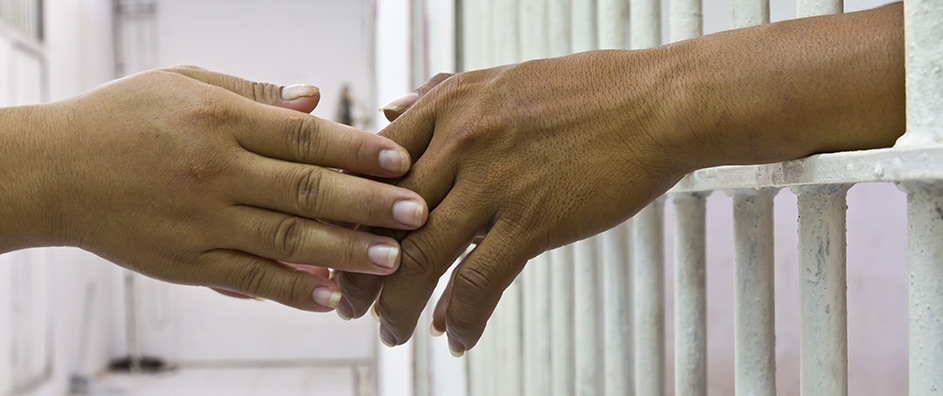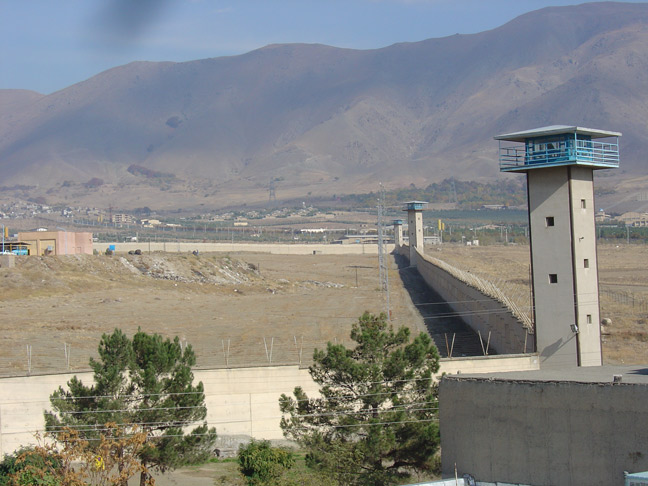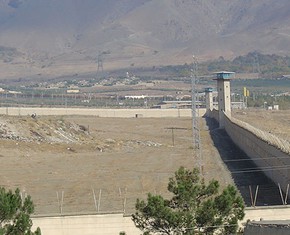The views expressed in our content reflect individual perspectives and do not represent the authoritative views of the Baha'i Faith.
Verily, thou didst incarcerate and make Me a prisoner. Dost thou imagine that imprisonment is a loss to Me — that imprisonment is a humiliation for Me? This imprisonment is a glory for Me because it is in the pathway of God. I have not committed a crime. It is for the sake of God that I have received this ordeal. – Baha’u’llah, Tablet to the Sultan of Turkey.
This recent letter from Vahid Tizfahm—an imprisoned Baha’i in Iran—was sent to his son two weeks ago.
My Dear Son, Samim,
As you well know, six years of my sentence have passed, and in a few days, on 15 May, the seventh year will begin. I am well aware of all the problems and hardships that you have had to overcome, sometimes alone and at times with the help of others. Today, I have decided to review the last 32 years by sharing with you some of the many bittersweet experiences of my life.
Many years ago, when I was nine years old, security agents raided our home one morning. After searching through the rooms, closets and our books, they arrested my 42-year-old father and took him away. After eight months of weekly visits in the Orumiyeh prison, during one of our last visits, my father asked my mother, “Should it be God’s will that I give my life for my beliefs and my Faith, will you promise to take care of our children and to raise them to be honorable members of society according to my wishes?” Saddened by this request, my mother replied, “Yes, I promise. Rest assured and remain steadfast in your path.”
Finally, in May 1982, during one of those visits to the prison we waited anxiously with my sisters and three-year-old brother to once again see our father’s loving face across the room until the guard finally informed us that our father was no longer there and had been moved to another location. Disheartened and disappointed, we returned home. After two days of searching and appealing to various administrative and legal authorities we received no definitive answers and finally, in desperation, we went to the Ministry of Justice’s morgue in Orumiyeh, hoping to find our father. The attendant told us that they received several unidentified bodies every day. After our insistence, he acknowledged that there was a body there that matched our description, and that there were three bullet wounds on it.
In those years, I was full of questions and ambivalence! Why should my father — a devout, selfless and honest man whose only crime as a teacher in the Department of Education was to serve his countrymen and the Baha’is in his community – be executed? Did those who committed this heinous act stop to ask themselves who was the target of their bullets and why? Did the executioners who carried out the sentence stop for one moment to wonder what his crime was? What was he guilty of that he should be treated in such a cowardly manner? What was he guilty of that he should be denied a lawyer, denied the opportunity to defend himself, and face a charge never proven by any evidence? In the end he was put to death solely because of his adherence to his religion and his steadfast refusal to recant his Faith in spite of the threats and inducements.
My beloved father gave his life because his beliefs differed from those of the people in power, the absence of an independent and just judiciary, and the decisions of one or more perverse and misguided individuals. He wanted to testify to his “belief in the unity of all mankind and the development and progress of Iran and its people through devotion and service to all those he knew.” He chose to be unwavering and steadfast in his beliefs and to sacrifice his life rather than cling to a worldly existence of material pleasures and an abject life of denial. In spite of his deep devotion and love for his wife and children and his sisters, he cried out his adoration for his Beloved as he left us, holding the picture of his three-year-old son Hushmand in his clenched hand.
My dear Samim, my precious son, history is repeating itself. I am now serving a 20-year sentence in exile in Rajaee Shahr Prison, one of the harshest sentences given to prisoners of conscience. During the last six years, I spent many months in solitary confinement in ward 209 and which I will describe at another time. I have lived for months in this dreadful prison known among the inmates as the “black pit” of Iranian prisons, in communal cells measuring ten square meters for five prisoners. Of course, for the last three and a half years my home and shelter has been Rajaee Shahr Prison in Karaj, one of the highest security prisons in Iran. Except for a limited number of political prisoners and prisoners of conscience, the majority of the inmates are considered dangerous and are on the death row. I was detained for 20 months before I was allowed to meet with my lawyer for half an hour and under strict surveillance. That is all! I remember that one of the political prisoners in Evin prison who was executed two years ago said, “Things have changed a lot in our country; although your father was not allowed a lawyer, you have one and in the next generation your son will have full legal rights as a prisoner!”

















Comments
Sign in or create an account
Continue with Googleor